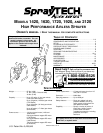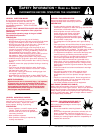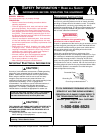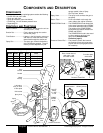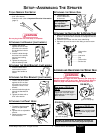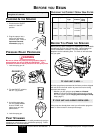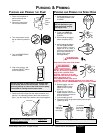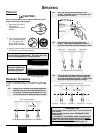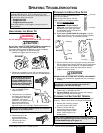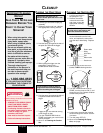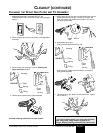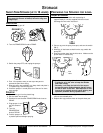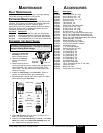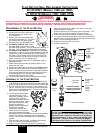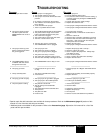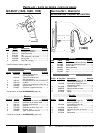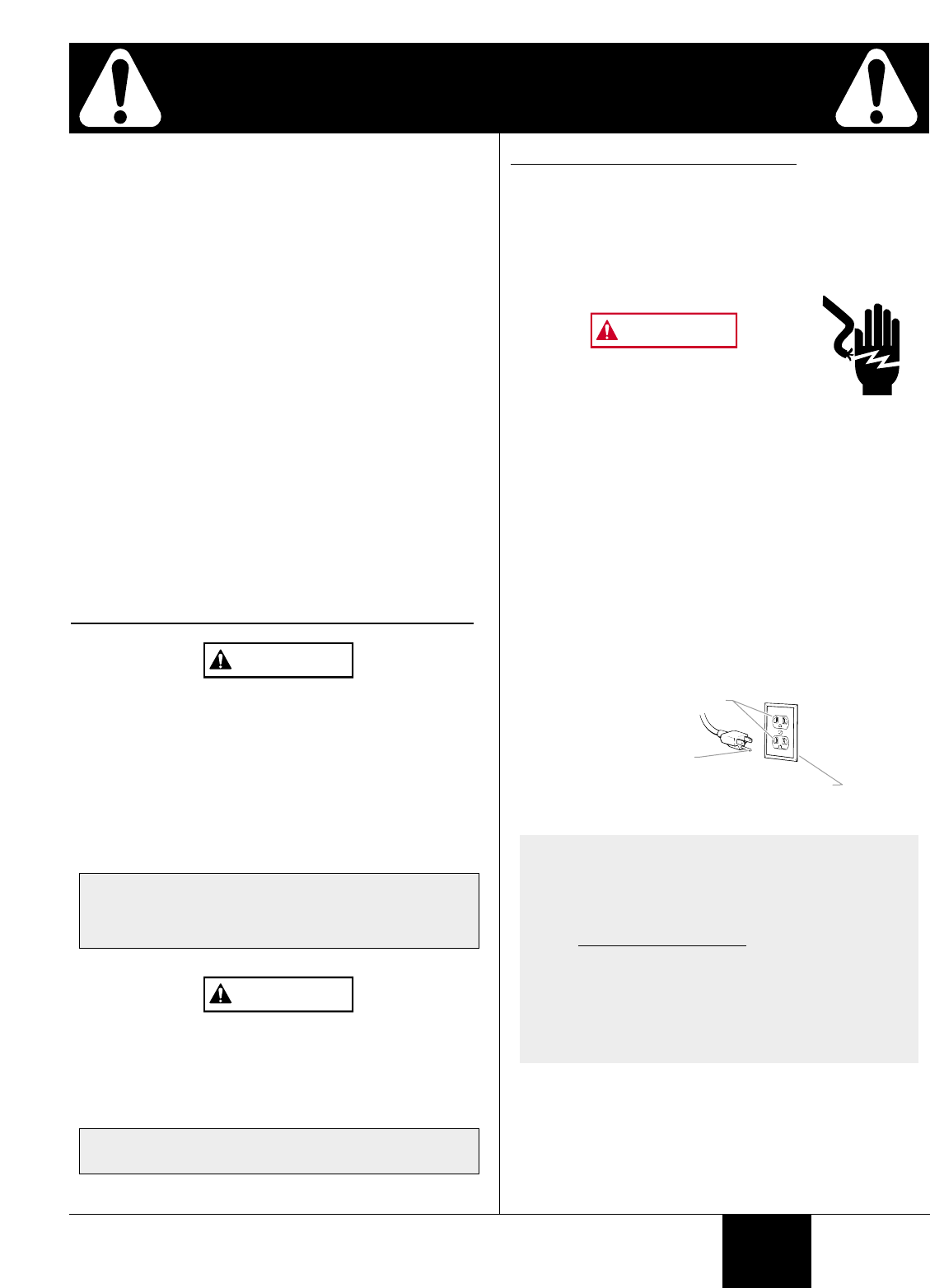
HAZARD: GENERAL
Can cause severe injury or property damage.
PREVENTION:
• Read all instructions and safety precautions before
operating equipment.
• Follow all appropriate local, state, and national codes
governing ventilation, fire prevention, and operation.
• The United States Government Safety Standards have
been adopted under the Occupational Safety and Health
Act (OSHA). These standards, particularly part 1910 of
the General Standards and part 1926 of the Construction
Standards should be consulted.
• Use only manufacturer authorized parts. User assumes
all risks and liabilities when using parts that do not meet
the minimum specifications and safety requirements of the
pump manufacturer.
• Before each use, check all hoses for cuts, leaks, abrasion
or bulging of cover. Check for damage or movement of
couplings. Immediately replace the hose if any of these
conditions exist. Never repair a paint hose. Replace it
with another grounded high-pressure hose.
• All hoses, swivels, guns, and accessories must be
pressure rated at or above 2800PSI/193 BAR.
• Do not spray outdoors on windy days.
• Wear clothing to keep paint off skin and hair.
I
MPORTANT E
LECTRICAL INFORMATION
Use only a 3-wire extension cord that has a 3-blade grounding
plug and a 3-slot receptacle that will accept the plug on the
product. Make sure your extension cord is in good condition.
When using an extension cord, be sure to use one heavy
enough to carry the current your product will draw. An
undersized cord will cause a drop in line voltage resulting in loss
of power and overheating. A 14 or 12 gauge cord is
recommended. If an extension cord is to be used outdoors, it
must be marked with the suffix W-A after the cord type
designation. For example, a designation of SJTW-A would
indicate that the cord would be appropriate for outdoor use.
THE 1420 AND 1620 SERIES UNITS ARE PROVIDED WITH
A NON-RESETABLE THERMAL OVERLOAD. THE 1720,
1920 AND 2120 SERIES UNITS ARE PROVIDED WITH A
REPLACEABLE FUSE.
• Always disconnect the motor from the power supply
before working on the equipment.
The cause of the overload should be corrected before
restarting. Take to Service Center.
CAUTION
Do not use more than 100 feet of hose. If you need to
paint further than 100 feet from your power source,
use more extension cord, not more paint hose.
CAUTION
GROUNDING INSTRUCTIONS
This product must be grounded. In the event of an electrical
short circuit, grounding reduces the risk of electric shock by
providing an escape wire for the electric current. This product
is equipped with a cord having a grounding wire with an
appropriate grounding plug. The plug must be plugged into an
outlet that is properly installed and grounded in accordance
with all local codes and ordinances.
Improper installation of the grounding plug
can result in a risk of electric shock.
If repair or replacement of the cord or plug is necessary, do not
connect the green grounding wire to either flat blade terminal.
The wire with insulation having a green outer surface with or
without yellow stripes is the grounding wire and must be
connected to the grounding pin.
Check with a qualified electrician or serviceman if the
grounding instructions are not completely understood, or if you
are in doubt as to whether the product is properly grounded.
Do not modify the plug provided. If the plug will not fit the
outlet, have the proper outlet installed by a qualified electrician.
This product is for use on a nominal 120 volt circuit and has a
grounding plug that looks like the plug illustrated below. Make
sure that the product is connected to an outlet having the
same configuration as the plug.
IF YOU EXPERIENCE PROBLEMS WITH YOUR
SPRAYER AT ANY TIME DURING ASSEMBLY,
OPERATION OR CLEANUP, PLEASE REFER TO
THE TROUBLESHOOTING
SECTION OF THIS
MANUAL
(PAGE 15), OR CALL CUSTOMER
SERVICE AT
:
1-800-686-8525
Grounded Outlet
Grounding Pin
Cover for grounded outlet box
WARNING
© 2002 Wagner Spray Tech - All rights reserved. 1-800-686-8525 3
English
SAFETY INFORMATION • READ ALL SAFETY
INFORMATION BEFORE OPERATING THE EQUIPMENT



